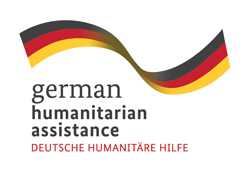MAG has been working in Chad since 2004 to reduce the daily risk of death or injury from landmines and unexploded bombs, and to create safe and secure conditions for development free from armed violence.
Why we work in Chad
Northern Chad is heavily contaminated with landmines and other unexploded bombs, largely from the conflict between Libya and Chad from 1979 to 1987 – a major obstacle to local development.
These unexploded items also have a humanitarian impact, particularly on the nomadic communities in the north. Significant numbers of accidents in some areas have forced nomads to abandon traditional camel trade routes for longer ones, putting them and their animals at risk of thirst and exhaustion.
Clearing land of explosives also reinforces local economies. Clearing roads will help improve trade and opens the path for economic, social, administrative, health and security improvements.
Chad is now considered a relatively stable state in an otherwise unstable region. Yet ongoing conflicts in Chad and in neighboring countries show how non-state armed groups can exploit instabilities and porous borders. This regional instability is compounded by the widespread proliferation of small arms and ammunition. Large amounts of unsecured explosives increase the likelihood of them entering the black market, which affects the country's stability.
Safety and security with weapons is very important and we have trained more than 2000 recruits over the last nine months.
Danemadji Toubard,Chad
How we help
MAG has recently begun clearing landmines in the Tibesti region, enabling the local population to reach the regional center more quickly and improving their access to basic government services. We are also clearing a minefield that hinders the region’s camel trade. MAG will also respond to community reports of explosive items in both the Tibesti and the Lake Chad regions, as well as conduct risk education.
We also deliver arms management and destruction projects at various locations across the country. By building and rehabilitating quality storage facilities, MAG reduces the risk of weapons and ammunition being diverted to the illicit arms trade, and lessens the devastating human cost of unplanned explosions at munitions sites. We have also developed an innovative storage concept using mobile armories.
MAG has also developed a range of training courses, including armory storage and management, ammunition storage and management and ammunition and weapons destruction courses to help build national capacity.













